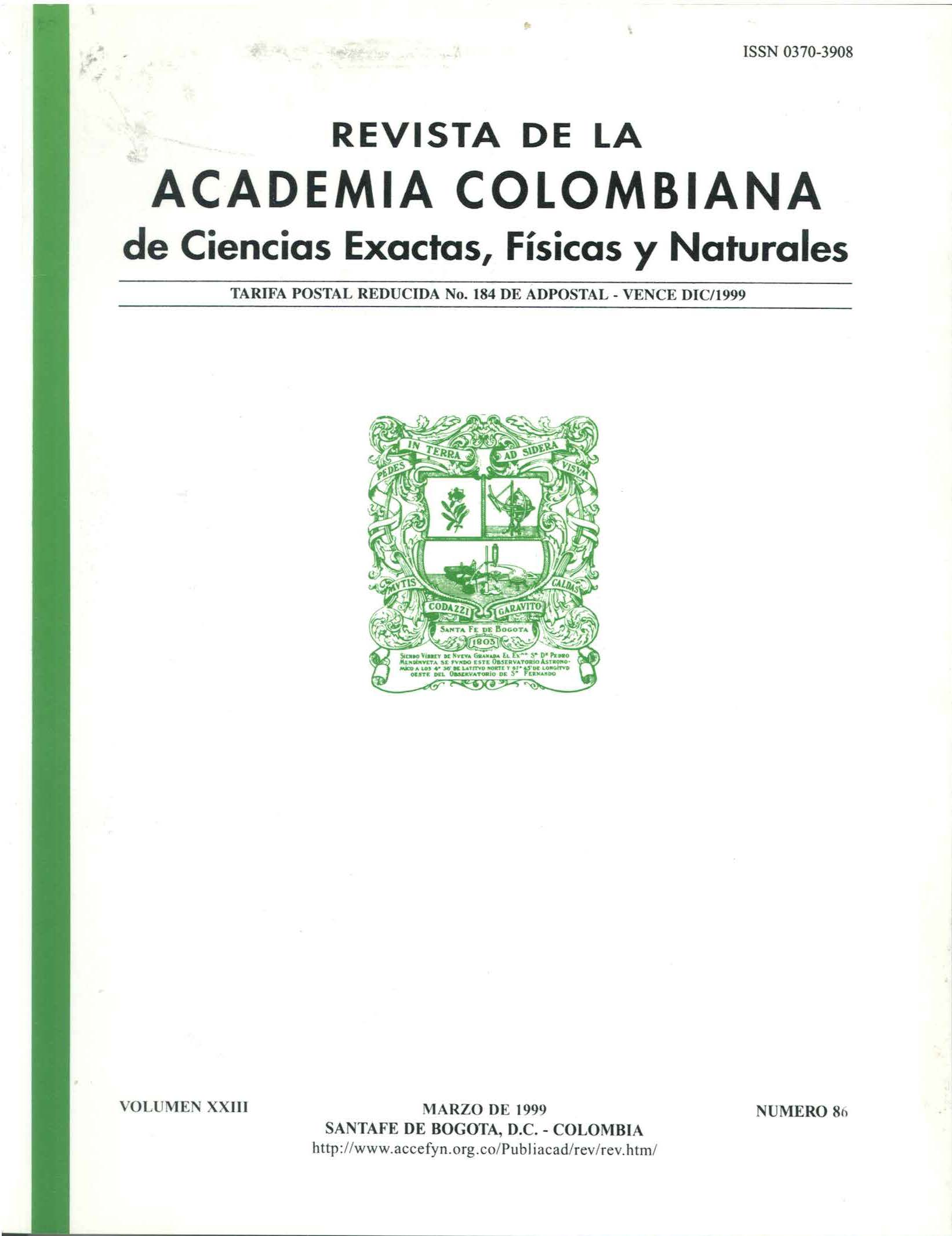Resumen
Se presentan datos relativos a la ecología y el comportamiento de Crocodylus intermedius en los ríos Cravo Norte, Ele, Lipa, Casanare y el Caño Matepalma. Se establecen diferencias en el comportamiento de los adultos y el cuidado del nido y de las crías. El período de nidificación ocurre desde finales de diciembre hasta mediados de enero. Las crías nacieron entre mediados de marzo a principios de abril. El tamaño de las nidadas fue de 20 a 34 huevos. Se ubicaron 7 zonas de nidificación. Nidos abiertos después del nacimiento de las crías permiten presumir que las hembras excavan los nidos al momento del nacimiento. La zona de estudio presenta aspectos bióticos y abióticos óptimos; sin embargo, sus pobladores constituyen un factor de enorme presión.
Referencias
Ayarzagüena, J. 1983. Ecología del caimán de anteojos o baba (Caiman crocodilus L.) en los llanos de Apure (Venezuela). Acta Vertebrata:Estación Biológica de Doñana. 10(3): 136 p.
Lang, J. W. 1987. Crocodilians Thermal Selection. Pp. 301-317 In G. J. W. Webb, S. C. Manolis, and P. J. Whitehead. Wildlife Management: Crocodiles and Alligators. Surrey Beatty & Sons, Ltda., Chipping Norton, Australia.
Lehner, P. 1979. Handbook of ethological methods. Garland STPM Press. New York. US. 403 p.
Lugo, L.M. 1995. Cria del caimán del Orinoco (Crocodylus inter- medius) en la Estación de Biologia Tropical "Roberto Franco". Villavicencio, Meta. Rev. Acad. Colomb. Cienc. Exa. 19 (4):601-606
Medem, F. 1981. Los Crocodylia de Sur América, Vol. I. Los Crocodylia de Colombia. COLCIENCIAS. pp. 354. Tab. 16. Map. 4. Fig. 138. Bogotá, Colombia.
Medem, F.1983. Los Crocodylia de Sur América, Vol. II. COLCIENCIAS. pp. 270. Tab. 8. Map. 13. Fig. 71. Bogotá, Colombia.
Thorbjarnarson, J. B. 1987. Status, ecology and conservation of the Orinoco crocodile (Crocodylus intermedius) in Venezuela. Report to WWF. 74 p.
Thorbjarnarson, J. B. 1988. The status and ecology of the American crocodile in Haiti. Bull. Florida, State Mus., Biol. Sci. 33(1):1-86
Thorbjarnarson, J. B & H. 1993a. Reproductive ecology of he Orinoco crocodile (Crocodylus intermedius) in Venezuela. I. Nesting ecology and egg an clutch relationships. Journal of Herpetology. 27(4):363-370.
Thorbjarnarson, J. B & H. 1993b. Reproductive ecology of the Orinoco crocodile (Crocodylus intermedius) in Venezuela. II. Reproductive and social behavior. Journal of Herpetology, 27 (4) 371-379.

Esta obra está bajo una licencia internacional Creative Commons Atribución-NoComercial-SinDerivadas 4.0.
Derechos de autor 2024 Revista de la Academia Colombiana de Ciencias Exactas, Físicas y Naturales

